British icon Jaguar is gearing up to be fully electric by 2025. What about other British electric cars or EVs built in the UK? We uncover the EVs ‘Made in Britain’ and celebrate distinctly British icons entering the electric age.
She’s electric: Mini still at home in the UK
The iconic Mini was a fuel-efficient response to the oil price hikes of the Suez Crisis. The Mini became a symbol of the swinging sixties. Mini remains timeless and classless – equally at home outside a suburban family house as the London pads of pop stars ever since.
The Mini Electric is built at the same Oxford factory as the original. Mini’s Cowley plant employs 4,500 people, building 223,000 new cars a year, of which 80% are exported. As soon as the Mini Electric leaves these shores it goes by the rather inconspicuous name ‘Mini Cooper SE’.
The electric Mini makes various references to its UK roots – from the tail-light union jack to the, slightly more subtle, UK three-pin plug design on its hubcaps. Could that be enough to make it the most British electric car?
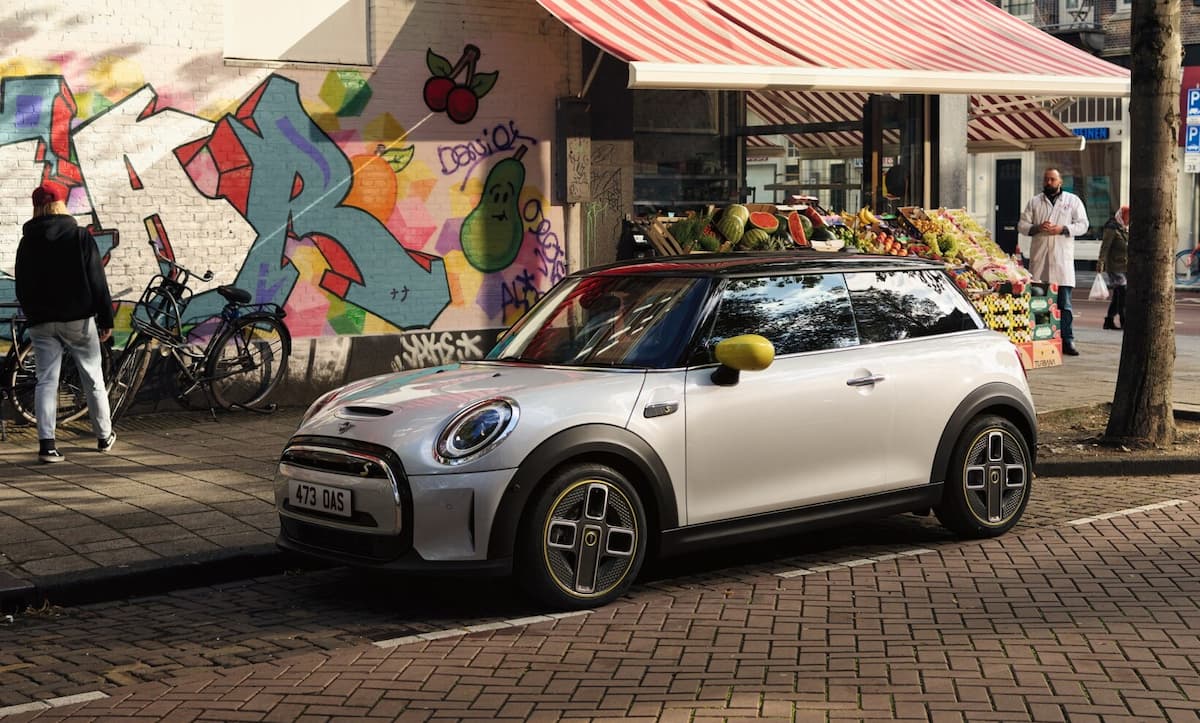
Cool Britannia: The UK-built Mini Electric makes its British roots clear
As an EV, the Mini Electric is unusual too. Firstly, it weighs only slightly more than a petrol version. Secondly, in fitting with its thrifty roots, the Mini Electric came out £600 cheaper than the equivalent Mini Cooper S with an automatic gearbox.
Mini has bold plans to revolutionise production at its Oxford factory with the arrival of two new radical family SUVs and the next-generation Mini hatchback that will see Britain continue to be ‘the home of the Mini brand’.
A new large zero-emissions Mini SUV will go into production in Oxford based on the roomy Urbanaut prototype first revealed in 2020. It may be badged as a ‘Clubman’, a name traditionally reserved for estate versions.

The Mini Urbanaut will be built in Oxford
Turn over a (British) Nissan Leaf
It may not be top of a list of British electric car brands, but the Nissan Leaf is British built. It is also a well-loved EV institution – until the Tesla Model 3 hit our roads, it had been the best-selling electric car in Europe for years. LEAF stands for Leading, Environmentally Friendly, Affordable, Family Car.
Nissan’s Sunderland plant directly employs over 6,000 people, with a further 46,000 jobs supported through its extensive nationwide supply chain. Since production began at Nissan Sunderland in 1986, 10 million vehicles have rolled off the line – including over 175,000 Electric Leafs.

Ten years on, the British-built Nissan Leaf in 2010 and 2020
Gill Nowell, EV advocate and founding member of the EV Association of England is one of many EV drivers who got behind the wheel of a Leaf when she started driving electric.
Batteries for the smaller 40kWh Leaf are produced round the corner by Chinese firm Envision. The batteries of the largest 62kWh version are currently produced in the US, but Nissan plans to bring these onshore too.
Nissan announced late in 2021 plans for a world-first £1bn flagship hub for EV manufacturing in Sunderland. Alongside a 9GW battery gigafactory, to be built by partner Envision AESC. The product? An all-new, all-electric family crossover.
Could this be the new Nissan Ariya electric SUV? The Ariya, which will start deliveries in summer 2022, is currently being built for the UK market at Nissan’s Tochigi plant in Japan.
Take an electric car suitability check
Will Vauxhall’s electric Astra be British?
The Astra has long been an affordable British hero. This popular family car has been around for over 40 years, and has seen the arrival and departure of the equally iconic Ford Escort. Will an electric Astra last longer than production of the electric VW eGolf?
The full electric won’t be coming off the production line in Ellesmere Port, Cheshire. The plant was announced as the centre of Vauxhall’s electric van plans, with full-electric versions of Stellantis’ Opel/Vauxhall Combo, Peugeot Partner and Citroen Berlingo small vans built at Ellesmere Port. The Astra is set to move production to near Frankfurt in Germany.
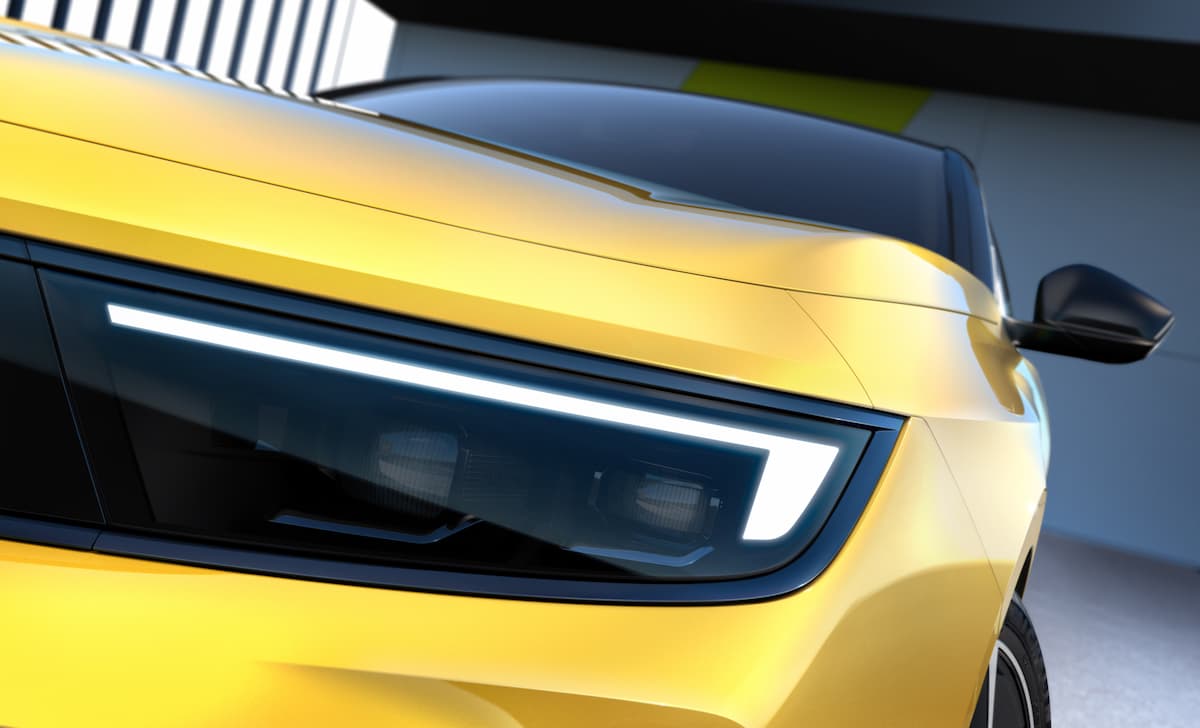
Vauxhall has given us a glimpse of their British-designed electric Astra, but will it be British-built?
Electric Roller to start EV era
What car could be more British than a Rolls Royce? A series-production electric car via launch in late 2023, followed swiftly by an entirely electric line-up by 2030. Earlier nicknamed the ‘Silent Shadow’, it is actually to be called ‘Spectre’. Very 007.

The 2011 electric Rolls-Royce, Phantom VII, never made production
Rolls-Royce dabbled in all-electric models back in 2011, with a Phantom-type EV that could glide to 62 mph in 8 seconds. It had the largest battery pack ever fitted into a passenger car – 71 kWh (ten years on, 64kWh is pretty common). It had relatively fast charging too, and could replenish its battery in a speedy 8 hours.
Jaguar speeds to luxury electric car status
Luxury brand Jaguar has set its sights on becoming electric-only from 2025. Jaguar will continue its push upmarket, heading towards Bentley’s territory, and staying clear of the SUV segment. Expect some sporty cars. Meanwhile, its current electric SUV bestseller the I-Pace continues to be built on its unique platform in Austria and will have a “normal lifespan”.
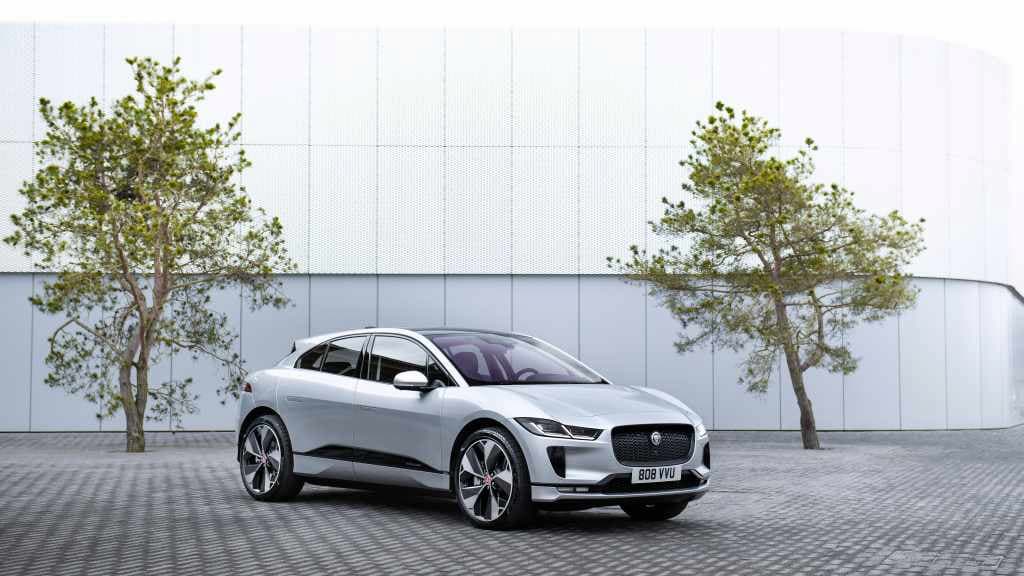
British iconic brand Jaguar actually produces the electric I-Pace in Austria
Jaguar Land Rover (JLR) is now owned by the Indian Tata Motors group, but continues to produce electric cars at two sites in the UK. A battery site at Hams Hall will produce hybrid and pure-electric systems. Solihull will build Land Rovers on the MLA platform and Jaguar models on the new BEV platform. Without an electric version of the XJ saloon, a third JLR plant at Castle Bromwich will become hub for other Midlands-based Jaguar businesses.
JLR is also committed to become a net-zero carbon business from 2039.
Land Rover, not off the road yet
Icon of the British countryside, Land Rover will launch six EV variants within the next five years. These variants retain Land Rover’s off-road ethos, although a full electric Range Rover being nicknamed the ‘Road Rover’ is due in 2024. By the end of 2029, every Land Rover model will have an electric-only version.
Bentley has ground to cover to go all-electric
Crewe-based Bentley will please its clientele “desperate for a luxury electric product”, confirming that by 2030 it will be ready for its entire lineup to be electric. It’ll have to be a quick turnaround though, with the car maker not even expecting its first electric effort before 2025. Bentley can look to sister-brands Audi and VW for electric drivetrain tech – but when it arrives expect an electric Bentley with a distinct British character.
Lotus goes hyper-electric
Lotus’s extraordinary Evija (pronounced “eh-vai-ya”) means “the first in existence”. It’s the firm’s first pure-electric production car. An eye-watering £1.7 million will you get a car built by hand and tested around the famous test track at the factory in Hethel, Norfolk.
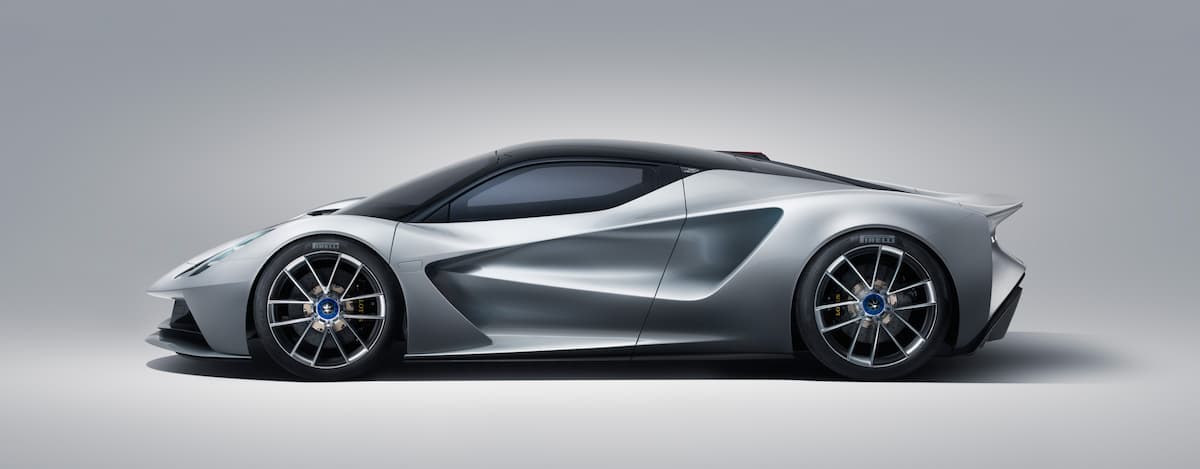
Lotus’ Evija Hypercar drives fast but charges faster
Lotus says its 1,973bhp and 1,254 lb ft of torque are good for a 0-62mph time of under three seconds and a top speed of 200mph. A mid-mounted battery pack, developed by the Williams Formula 1 team, officially does 250 miles on a full charge.
Evija owners will be quick at the pump too – charging at a future-proofed 800kW. That’s double the speed of ultra-fast public chargers currently being rolled out in the UK. In theory, the Evija could recharge from flat in under ten minutes. Lotus plans to unveil an electric sports car with more attainable price tag towards the end of this year.
Lotus Cars was founded and owned for many years by Colin Chapman but is now owned by Chinese multinational Geely.
What’s your electric car match?
The smaller heroes of British electric motoring
Even before a silent Silent Shadow becomes reality, you can already get an electric Rolls-Royce. These are rebuilt from the ground up in Silverstone by Lunaz, a British automotive engineering company breathing new life into classic cars with an electric power train. Celebrated classics it has brought back to life include a 1961 eight-seat Rolls-Royce Phantom V, Rolls Royce Cloud and a 1953 Jaguar XK120. In the ultimate example of upcycling, Lunaz source cars that are no longer functional and create beautiful, clean and usable electric classic cars. David Beckham has recently backed them, so expect to hear more as Lunaz goes global.
Newtown, Wales is the home to a similar upcycler, Electric Classic Cars, which converts classic cars to 100% electric and sells kits so you can convert your own classic. It has worked on vehicles including the Range Rover Classic, Ferrari 308 and BMW CSi.

Welsh firm Electric Classic Cars builds electric into classic cars
Zero-emission electric deliveries in Bicester
Just down the road from Mini is Arrival, an English electric van manufacturer. Arrival has moved into a brand new plant in Bicester which uses a ‘skateboard’ platform to assemble EVs.
UPS, the US logistics company, has ordered 10,000 electric vans from Arrival in a deal worth $440 million. Arrival will produce US vehicles in “micro-factories” near Los Angeles and New York. The factory in Oxfordshire will deliver the Europe-bound electric delivery vans for UPS. As well as the UK and the US, Arrival has production facilities and research and development centres in Germany, Israel and Russia.

British delivery – UPS has ordered 10,000 electric vans from Arrival
A British battery is the backbone of UK EV production
As Nissan’s decision-making over the Ariya showed, the collective fate of British electric cars rests with the battery. In five years, a EU trade deal will slap tariffs on any car less than half ‘British’. As only around a quarter of components for average cars are supplied within the UK, British batteries are a vital opportunity to hit this target with EVs.
Step in BritishVolt with a 2.7-million sq.ft. plant in the North-East of England set to open in 2023. An annual battery production of 35GWh by 2027, puts it just below Tesla’s gigafactory in Nevada. It will be one of the largest industrial investments in British history.
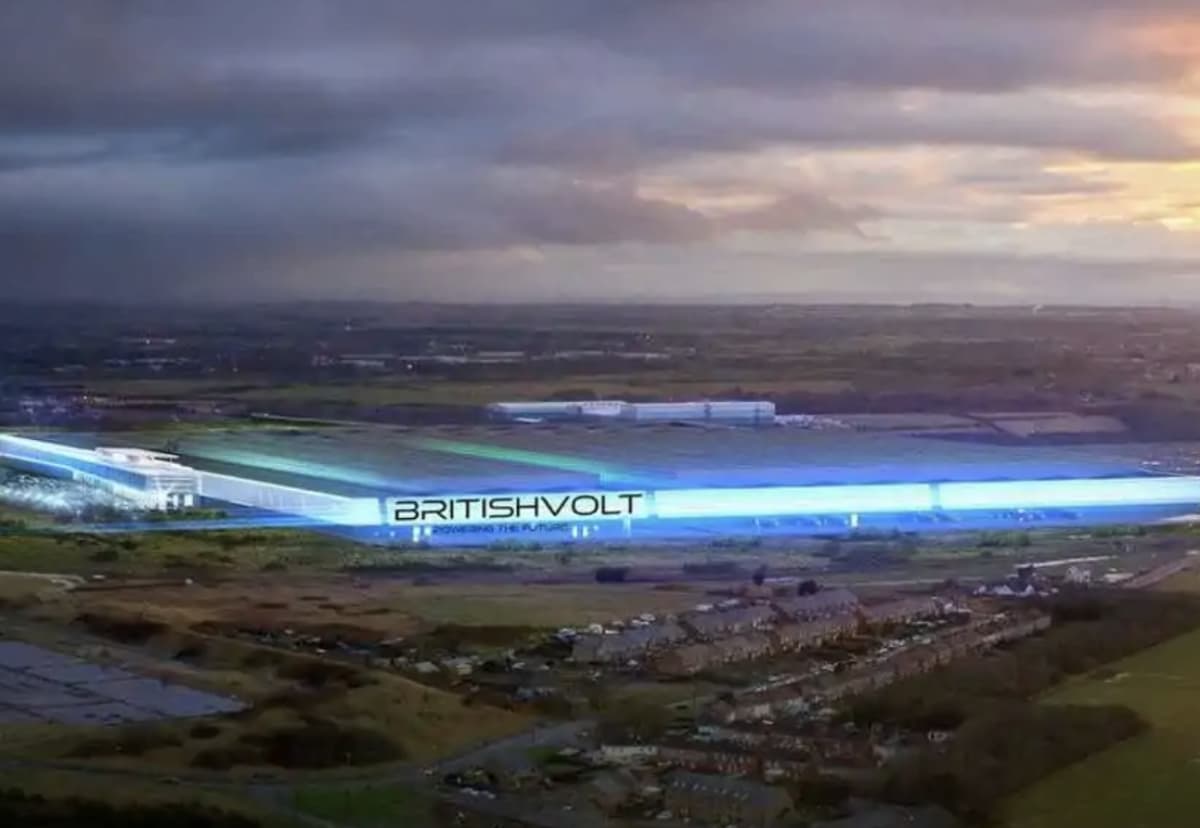
Britishvolt batteries will support the UK’s electric car industry from export tariffs
To start its battery output will be 10GWh – enough for 130,000 EVs. The plant will eventually create up to 4,000 jobs.
Coventry’s Hyperbat is another battery producer to watch. Hyperbat is a joint venture by Williams Formula One racing team and Unipart. They’ve invested in bringing their electric technology from research phase to scalable production.
Meanwhile, rumours persist that Tesla could be considering its own battery factory in the UK. Earlier in 2021, Elon Musk stopped of in the UK, keeping the British Tesla gigafactory hopes alive.
The UK currently exports all its end-of-life batteries. As gigafactories start producing, the UK needs to establish commercial-scale recycling for automotive lithium-ion batteries. The UK could be recycling as much as 80% of our battery materials by 2035.